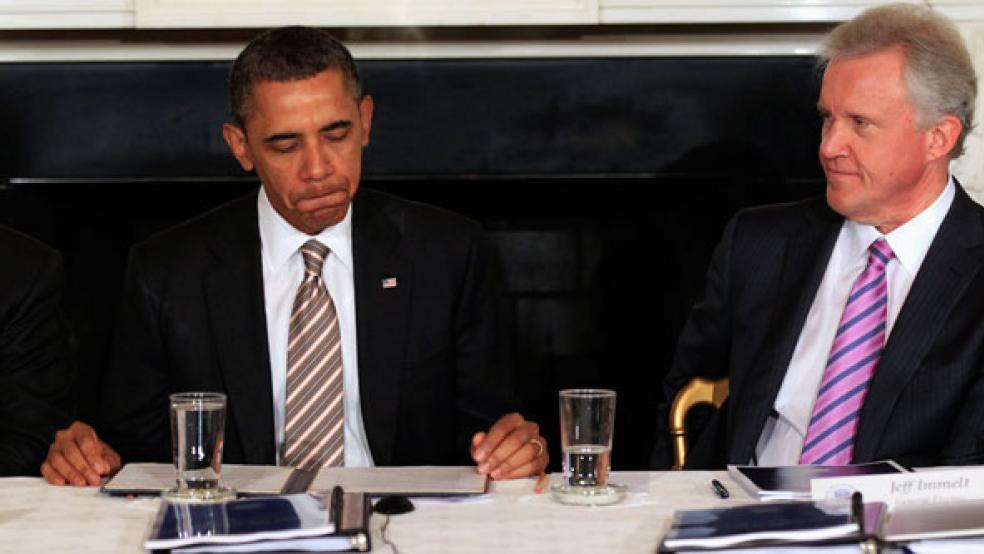More than two years ago, President Obama reached out to the business community by establishing the Council on Jobs and Competitiveness. The country was gasping on the employment front, as the feeble recovery failed – as is still the case – to propel much new hiring.

But the council’s charter expired today, and the White House has zero plans to renew or replace it even though unemployment remains at a historically high 7.8 percent and labor participation has plummeted.
White House press secretary Jay Carney portrayed the group, which met just four times and has not convened for more than a year, as a successful sounding board, despite evidence to the contrary.
“The work of the Jobs Council was very valuable,” even though the president “didn’t agree” with all of its recommendations, Carney said at a Thursday press briefing.
RELATED: Obama and Business: A Second Chance to Get It Right
General Electric Chairman and CEO Jeff Immelt led the council, which also included the heads of Intel, Xerox, Boeing, Comcast, and Intel, among other companies. They issued a report last year that called for making corporations’ foreign profits tax-free, optimizing the nation’s fossil fuel resources, and reviewing the economic impact of regulations.
Shortly after that report, Obama blocked the construction of the Keystone XL pipeline to transport oil from Canada and proposed corporate tax reform that included a minimum tax on overseas earnings. The push for more engineers, infrastructure spending, and support for manufacturing got a warm reception from the administration, but those proposals were much less controversial.
“Whether ignoring the group or rejecting its recommendations, the president treated his Jobs Council as more of a nuisance than a vehicle to spur job creation,” Brendan Buck, a spokesman for House Speaker John Boehner, told Bloomberg News in an e-mail. He also said: “To understand the abysmal nature of our economic recovery, look no further than the president’s disinterest in learning lessons from actual job creators.”
The Obama administration has endured a rocky relationship with corporate interests that have bristled at new financial regulations issued in response to the 2008 financial crisis and what they perceive as a less sympathetic ear. At the same time, businesses are earning record profits as salaries remain flat and economists talk about a jobless recovery.
RELATED: Someone Should Tell Obama Its Still the Economy
Some of the companies on the council – most notably, GE – also faced criticism for their low federal tax bill. One company, Eastman-Kodak, filed for bankruptcy after the appointment of its CEO to the group.
Carney said the council helped to determine a “new expanded effort” of engagement with business leaders, but the goals he listed – such as expedited permitting for infrastructure projects – suggest that corporate America will formally play a much more limited role in shaping policy.
The Obama spokesman noted how much the administration appreciates the support from the business community on immigration reform. Groups such as the Business Roundtable and the U.S. Chamber of Commerce have each called for comprehensive changes to address the status 11 million undocumented workers and ensure visas for more high-skilled immigrants.




